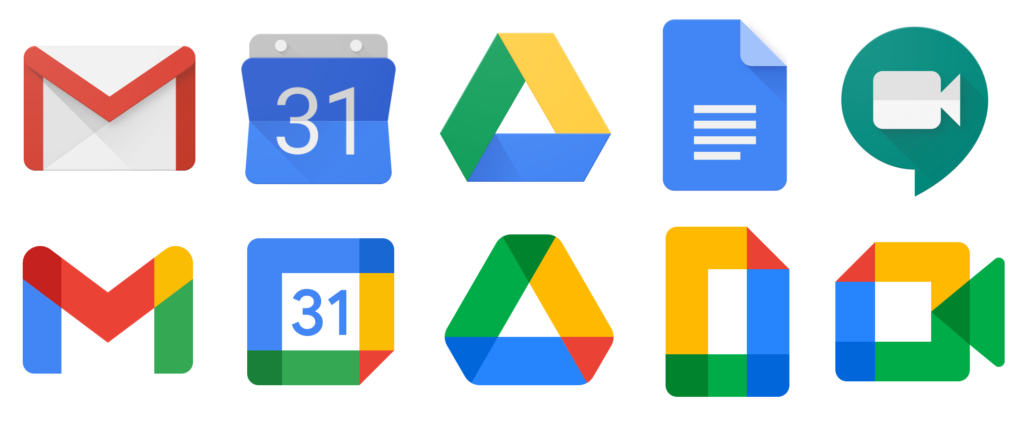Discover the incredible journey of Google, its innovative services, and its global impact. Learn how Google transformed technology, search, and everyday life in this in-depth guide.
Introduction
Google is more than just a search engine; it’s a revolutionary force that has shaped the way the world accesses information, communicates, and engages with technology. Founded in 1998 by Larry Page and Sergey Brin, Google started as a project to organize the world’s information and make it universally accessible. Today, it is a global powerhouse offering a plethora of services and products, influencing virtually every aspect of digital life.
Table of Contents
In this comprehensive article, we’ll dive deep into Google’s history, its core services, its role in innovation, and its significant impact on society. If you’ve ever wondered how Google became a cornerstone of the internet, keep reading to learn everything about this tech giant.
A Brief History of Google
The Founding Story
Google was founded in September 1998 by two Stanford University Ph.D. students, Larry Page and Sergey Brin. The duo developed a search algorithm called PageRank, which ranked websites based on their relevance and link popularity. This innovation transformed the search engine landscape by providing users with more accurate and useful search results.
The name “Google” is derived from “googol,” a mathematical term for the number 1 followed by 100 zeros, symbolizing the vast amount of information the company aimed to organize.
Major Milestones
- 2000: Google introduced AdWords, its advertising platform, which became a primary revenue driver.
- 2004: Google went public with its IPO, raising over $1.67 billion.
- 2006: Acquired YouTube, the world’s leading video-sharing platform.
- 2015: Restructured under Alphabet Inc., making Google one of its subsidiaries.
Core Services Offered by Google
Google offers an extensive range of services and products designed to meet the needs of users, businesses, and developers. Here are some of its most notable offerings:

1. Google Search
Google Search remains the company’s flagship product, processing over 8.5 billion searches per day. It uses sophisticated algorithms to deliver accurate and relevant results, along with features like autocomplete, image search, and voice search.
2. Google Ads
Google Ads is an advertising platform that helps businesses reach their target audiences through search, display, and video ads. Its pay-per-click (PPC) model has revolutionized online advertising.
3. YouTube
Acquired in 2006, YouTube is the leading platform for video content, offering a space for creators, businesses, and viewers. It features live streaming, monetization options, and a vast library of content.
4. Gmail
Gmail is one of the world’s most popular email services, known for its user-friendly interface, spam protection, and seamless integration with other Google services.
5. Google Maps
Google Maps provides accurate navigation, real-time traffic updates, and location sharing. It has become an indispensable tool for travelers and commuters alike.
6. Google Drive
Google Drive is a cloud-based storage solution that allows users to store, share, and access files from anywhere. Its seamless integration with Google Docs, Sheets, and Slides makes it a productivity powerhouse.
7. Google Chrome
Launched in 2008, Google Chrome is a web browser that prioritizes speed, security, and simplicity. It is the most widely used browser globally.
8. Android
Google’s Android operating system powers billions of smartphones worldwide. Its open-source platform has fostered innovation and competition in the mobile industry.
Google’s Role in Innovation
Google has consistently been at the forefront of technological advancements. Here are some key areas where it has made significant contributions:
Artificial Intelligence (AI)
Through its AI research and development arm, Google AI, the company has pioneered advancements in natural language processing, computer vision, and machine learning. Google Assistant and Google Translate are prime examples of AI-powered tools that enhance user experience.
Cloud Computing
Google Cloud provides businesses with scalable solutions for computing, storage, and machine learning. Its services are used by companies worldwide to drive innovation and efficiency.
Sustainability Initiatives
Google is committed to sustainability, investing in renewable energy and creating eco-friendly data centers. It aims to operate entirely on carbon-free energy by 2030.
Impact of Google on Society
Google’s influence extends far beyond technology. Here’s how it has impacted various aspects of society:
- Access to Information: Google has democratized information, making knowledge accessible to anyone with an internet connection.
- Education: Tools like Google Classroom and Google Scholar support learning and research for students and educators.
- Communication: Apps like Google Meet and Gmail facilitate seamless communication, especially during the global shift to remote work.
- Economic Growth: Through Google Ads and YouTube monetization, the company has created income opportunities for businesses and content creators.
Conclusion
Google has transformed the way we interact with technology, information, and each other. From its humble beginnings as a search engine to its current status as a global tech leader, Google continues to innovate and redefine possibilities. Its diverse range of services and products has become an integral part of our daily lives, shaping the digital world in profound ways.
Whether you’re searching for answers, navigating a new city, or collaborating on a project, Google has a solution tailored to your needs. The company’s commitment to innovation and accessibility ensures that it will remain a driving force in technology for years to come.
FAQs About Google
Q1: Who founded Google?
- Google was founded by Larry Page and Sergey Brin in 1998.
Q2: What is Google’s parent company?
- Google is a subsidiary of Alphabet Inc., a holding company established in 2015.
Q3: How does Google make money?
- Google’s primary revenue source is advertising through platforms like Google Ads and YouTube.
Q4: Is Google Search free to use?
- Yes, Google Search is free for users and generates revenue through advertising.
Q5: What are some lesser-known Google services?
- Lesser-known services include Google Arts & Culture, Google Lens, and Google Fit.
Q6: How secure is Google?
- Google invests heavily in security measures, including two-factor authentication, data encryption, and robust privacy policies.
Q7: What’s next for Google?
- Google is focusing on advancements in AI, sustainability, and quantum computing to shape the future of technology.
Google’s legacy is built on innovation, accessibility, and a vision to make the world’s information universally useful. It’s no wonder that “Google it” has become a part of our everyday vocabulary, symbolizing the brand’s unparalleled impact.



